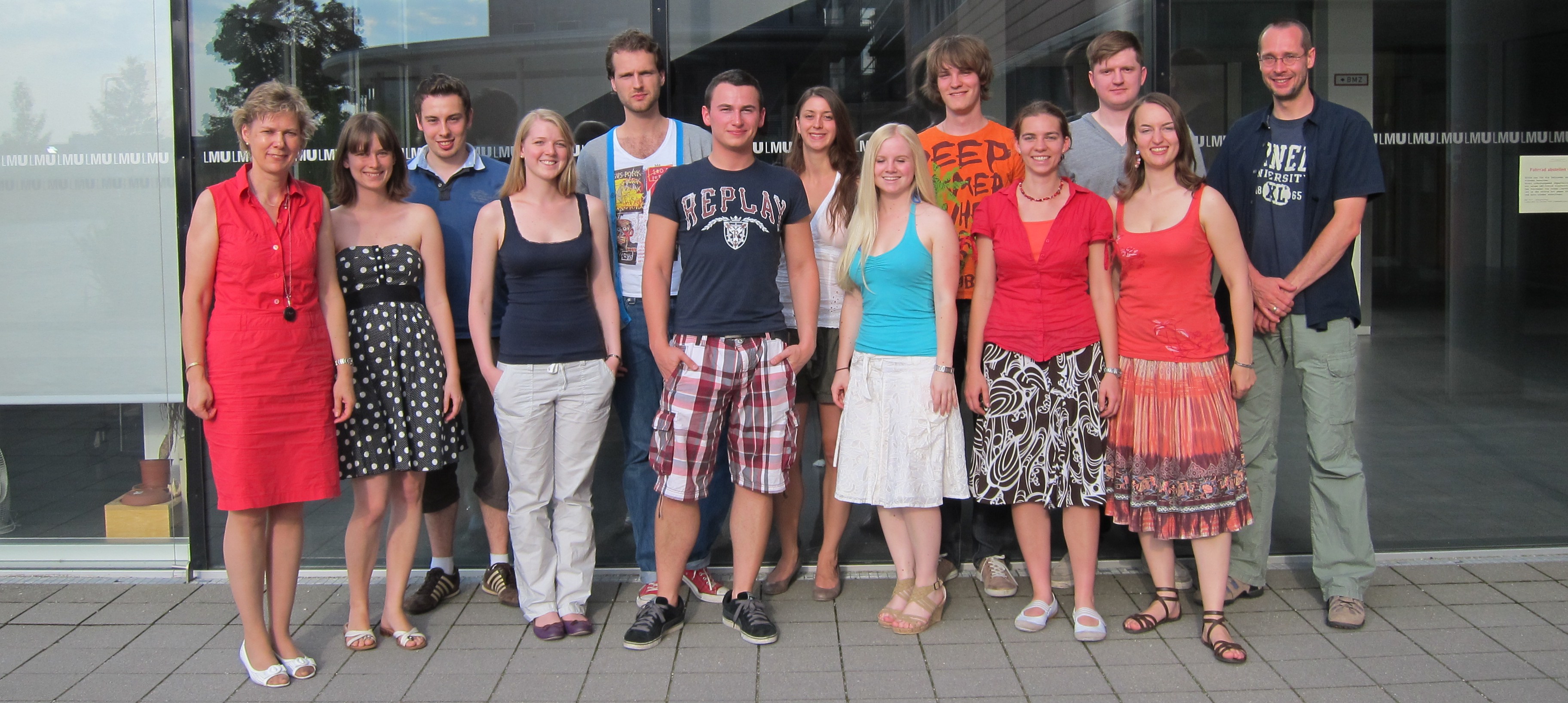Team:LMU-Munich
From 2011.igem.org
(official team profile richtiger link) |
|||
| Line 12: | Line 12: | ||
<div class="leftbox"> Watch this </div> | <div class="leftbox"> Watch this </div> | ||
<div class="leftbox"> <a href="#">Primer-Designer</a>: Totally magnificent! </div> | <div class="leftbox"> <a href="#">Primer-Designer</a>: Totally magnificent! </div> | ||
| - | <div class="fullbox"> Project description | + | <div class="fullbox"> Project description: Metals and especially heavy metals are highly prescribed in concentrations in the drinking water ordinance. Qualifying and quantifying these by standard chemical methods is costly and complicated. |
| - | + | ||
| - | + | ||
| - | + | ||
| - | Metals and especially heavy metals are highly prescribed in concentrations in the drinking water ordinance. Qualifying and quantifying these by standard chemical methods is costly and complicated. | + | |
Bacteria sense metals in their surrounding in order to change their expression profile or react in order to adapt and accomodate to their environment. | Bacteria sense metals in their surrounding in order to change their expression profile or react in order to adapt and accomodate to their environment. | ||
| Line 24: | Line 20: | ||
The quantification needs heavy high-tech machinery ... something not always given ... especially in free field. So a qualification of metals with a easy-to-see output is also needed. | The quantification needs heavy high-tech machinery ... something not always given ... especially in free field. So a qualification of metals with a easy-to-see output is also needed. | ||
| - | In the end our team hopes to have not only a set of metallsensors for precise quantification of a group of (heavy) metalls, but also an outdoor kit for qualifying metalls in more remote areas. With these it might be more easy and cheaper to determine the content of metals in our drinking water. | + | In the end our team hopes to have not only a set of metallsensors for precise quantification of a group of (heavy) metalls, but also an outdoor kit for qualifying metalls in more remote areas. With these it might be more easy and cheaper to determine the content of metals in our drinking water. </div> |
| + | |||
| + | ==<font color="#9933CC">'''Project'''</font>== | ||
| - | |||
| - | |||
| - | |||
| - | |||
<!--- The Mission, Experiments ---> | <!--- The Mission, Experiments ---> | ||
Revision as of 13:56, 28 August 2011
http://www.flickr.com/photos/johannesmeyer/5795660299/sizes/l/in/photostream/
Bacteria sense metals in their surrounding in order to change their expression profile or react in order to adapt and accomodate to their environment.
Using these sensors from (mostly) bacteria we create biosensors by linking them to the expression of a reporter (e.g. green glowing by the green fluorescent protein GFP). To not only qualify but also to quantify the metals, it is also necessary to measure the output by given input (metal concentration) for each of these biosensors. Afterwards one can determine the metal concentration by measuring the output.
The quantification needs heavy high-tech machinery ... something not always given ... especially in free field. So a qualification of metals with a easy-to-see output is also needed.
In the end our team hopes to have not only a set of metallsensors for precise quantification of a group of (heavy) metalls, but also an outdoor kit for qualifying metalls in more remote areas. With these it might be more easy and cheaper to determine the content of metals in our drinking water.Project
| Home | Team | Official Team Profile | Project | Parts Submitted to the Registry | Modeling | Notebook | Safety | Attributions |
|---|
 "
"

